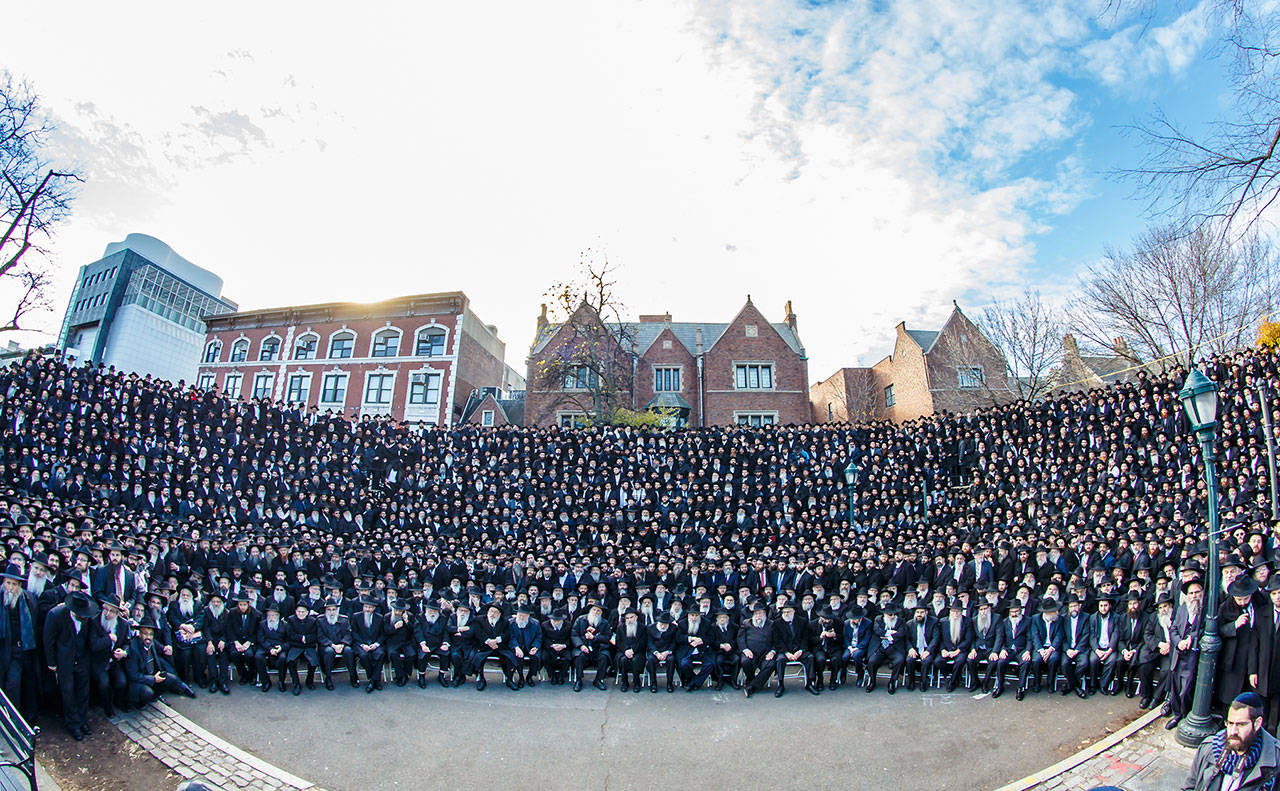Last week, Rabbi Nissan Kornfeld of Chabad Mercer Island, joined 5,600 rabbis and communal leaders from all 50 states and more than 100 countries, hailing from as far away as Laos and Angola, Ghana and Uzbekistan, at the International Conference of Chabad-Lubavitch Emissaries (Kinus Hashluchim) in Brooklyn, N.Y.
The annual event, the largest Jewish gathering in North America, came just days after the anti-Semitic shooting in Pittsburgh that left 11 dead, and as the Chabad-Lubavitch movement marks nearly 10 years since the murder of Rabbi Gabi and Rivky Holtzberg, directors of Chabad-Lubavitch of Mumbai, in the 2008 terrorist attacks in Mumbai.
“The Rebbe taught us that every person is endowed with importance and every positive act is a cause for celebration,” says Rabbi Nissan Kornfeld. “That idea is the thrust of the conference.”
The rabbis — each embracing multiple roles and responsibilities — explored relevant issues, and learned from professionals and colleagues with years of experience. The topics ran the gamut of their concerns: combating antisemitism; counseling and guiding congregations in the aftermath of the Pittsburgh attacks; synagogue security; the opioid epidemic; mental health; stemming the tide of assimilation; counseling troubled relationships; inclusion; and a conference within the conference for rabbis who serve students on college campuses, ensuring a lasting impact on the next generation.
They continue the legacy of the Rebbe, Rabbi Menachem M. Schneerson, of righteous memory, who spearheaded a global Jewish revival after the Holocaust. Universally known simply as the Rebbe, Rabbi Schneerson is considered the most influential rabbi in modern history. Although he died 24 years ago, the Rebbe’s legacy remains as vibrant as ever. His teachings continue to be a guiding force as a new generation of both Jews and non-Jews seeks to positively change the world for the better.
The conference included a memorial for the victims of the Pittsburgh Massacre.


